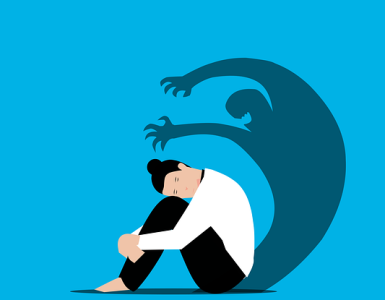In an era of unprecedented freedom and opportunity, a curious phenomenon has emerged: the paralysis of choice. As options in every aspect of life have multiplied exponentially, from the products we buy to the careers we pursue, many individuals find themselves overwhelmed rather than empowered. This “paradox of choice,” a term coined by psychologist Barry Schwartz, suggests that an abundance of options can lead to anxiety, indecision, and dissatisfaction. Far from being liberating, the constant pressure to make optimal decisions in a world of endless possibilities is taking a toll on our mental well-being. This exploration delves into how the proliferation of choices affects human psychology, decision-making processes, and overall happiness, offering insights into navigating the complex landscape of modern life.
The concept of choice as a cornerstone of freedom and well-being is deeply ingrained in modern society. Conventional wisdom suggests that more options lead to better outcomes and increased satisfaction. However, research in psychology and behavioral economics has revealed a more nuanced reality. While some choice is undoubtedly better than none, there comes a point where additional options yield diminishing returns and can even have negative consequences.
At the heart of the paradox of choice lies the cognitive burden of decision-making. Every choice requires mental effort, weighing pros and cons, and often involves the fear of making the wrong decision. In a world where we’re confronted with choices at every turn – from the 50 types of toothpaste at the supermarket to the myriad of potential life partners on dating apps – this cognitive load can become overwhelming.
The psychological impact of excessive choice manifests in several ways. One key effect is decision paralysis, where individuals become so overwhelmed by options that they struggle to make any choice at all. This can lead to procrastination and missed opportunities. For instance, studies have shown that when presented with too many investment options in 401(k) plans, employees are more likely to postpone making a decision, potentially missing out on valuable retirement savings.
Another consequence is increased anxiety and stress. The pressure to make the “best” choice can be daunting, especially when coupled with the fear of regret. This anxiety is often exacerbated by the modern phenomenon of FOMO (Fear of Missing Out), fueled by social media’s constant showcase of alternative choices and lifestyles.
Paradoxically, an abundance of choice can also lead to decreased satisfaction with the choices we do make. This is partly due to heightened expectations – with so many options available, we expect to find the perfect fit. When reality inevitably falls short of these inflated expectations, disappointment ensues. Additionally, the awareness of rejected alternatives can diminish our enjoyment of the chosen option, a phenomenon known as opportunity cost.
The paradox of choice doesn’t affect everyone equally. Research has identified two broad categories of decision-makers: maximizers and satisficers. Maximizers tend to seek the absolute best option, exhaustively comparing alternatives before making a choice. While this approach can sometimes lead to objectively better outcomes, it often comes at the cost of time, energy, and emotional well-being. Satisficers, on the other hand, are content with options that meet their core criteria, even if they’re not perfect. Studies suggest that satisficers tend to be happier and less prone to regret, despite potentially making “sub-optimal” choices.
The impact of excessive choice extends beyond individual psychology to societal trends. In the realm of relationships, for example, the paradox of choice may contribute to declining marriage rates and increasing age at first marriage in many developed countries. With a seemingly endless array of potential partners available through dating apps and social media, some individuals find themselves perpetually searching for a hypothetical “better” match, struggling to commit to any single option.
In the professional world, the abundance of career paths and job opportunities, while offering unprecedented freedom, can also lead to chronic indecision and career anxiety. The notion that one must find their “true calling” or “dream job” amidst countless possibilities can be paralyzing, especially for young adults entering the workforce.
The consumer marketplace is perhaps where the paradox of choice is most visible. Supermarkets now stock an average of 40,000 items, up from 15,000 in 1991. While this variety theoretically caters to diverse preferences, it also creates a daunting shopping experience. Studies have shown that reducing choice can actually increase sales and customer satisfaction. In one famous experiment, a display of 24 jam varieties attracted more attention but resulted in fewer purchases than a display of just 6 varieties.
The digital age has amplified the paradox of choice to unprecedented levels. Streaming services offer thousands of movies and TV shows, leading many viewers to spend more time browsing than watching. Social media platforms provide a constant stream of content, leaving users feeling overwhelmed and often less satisfied with their own lives in comparison.
Recognizing the negative impacts of excessive choice, some companies and policymakers are exploring ways to mitigate its effects. This includes strategies like curated selections, personalized recommendations, and simplified product lines. For instance, some retailers have found success with limited-time “capsule collections” that offer a carefully chosen selection of items, reducing decision fatigue for consumers.
In the realm of public policy, the concept of “choice architecture” has gained traction. This approach involves designing the way choices are presented to nudge people towards beneficial decisions without removing freedom of choice. For example, making organ donation the default option (with the ability to opt-out) has significantly increased donation rates in countries that have adopted this policy.
On an individual level, there are strategies to cope with the paradox of choice. One approach is to become more aware of one’s decision-making style and to consciously adopt satisficing behaviors when appropriate. Setting personal rules or heuristics for certain types of decisions can also help reduce decision fatigue. For instance, always buying the same brand of certain household items or limiting the time spent comparing options for non-critical decisions.
Practicing gratitude and mindfulness can also counteract the negative effects of excessive choice. By focusing on appreciation for what we have rather than what we’re missing out on, we can increase satisfaction with our choices and reduce FOMO.
It’s important to note that the paradox of choice is largely a phenomenon of affluent societies. For many people around the world, lack of choice in fundamental areas like food, healthcare, and education remains a pressing issue. The challenge, then, is to find a balance – preserving the benefits of choice and opportunity while mitigating its potential downsides.
As we move forward, understanding and addressing the paradox of choice will be crucial for individual well-being and societal progress. This may involve reevaluating our cultural emphasis on maximization and perfection, and instead cultivating an appreciation for “good enough” choices. It might also require designing systems and interfaces that help manage complexity and facilitate decision-making without overwhelming users.
In conclusion, the paradox of choice reveals a fundamental tension in modern life – between the freedom that abundance provides and the burden it imposes. As we navigate this complex landscape, the key lies not in eliminating choice, but in developing the wisdom to know when more options truly add value and when they merely add noise. By understanding the psychological mechanisms at play and adopting strategies to manage choice effectively, we can harness the benefits of abundance while avoiding its pitfalls, ultimately leading to more satisfying and fulfilling lives in our choice-rich world.
























Add comment